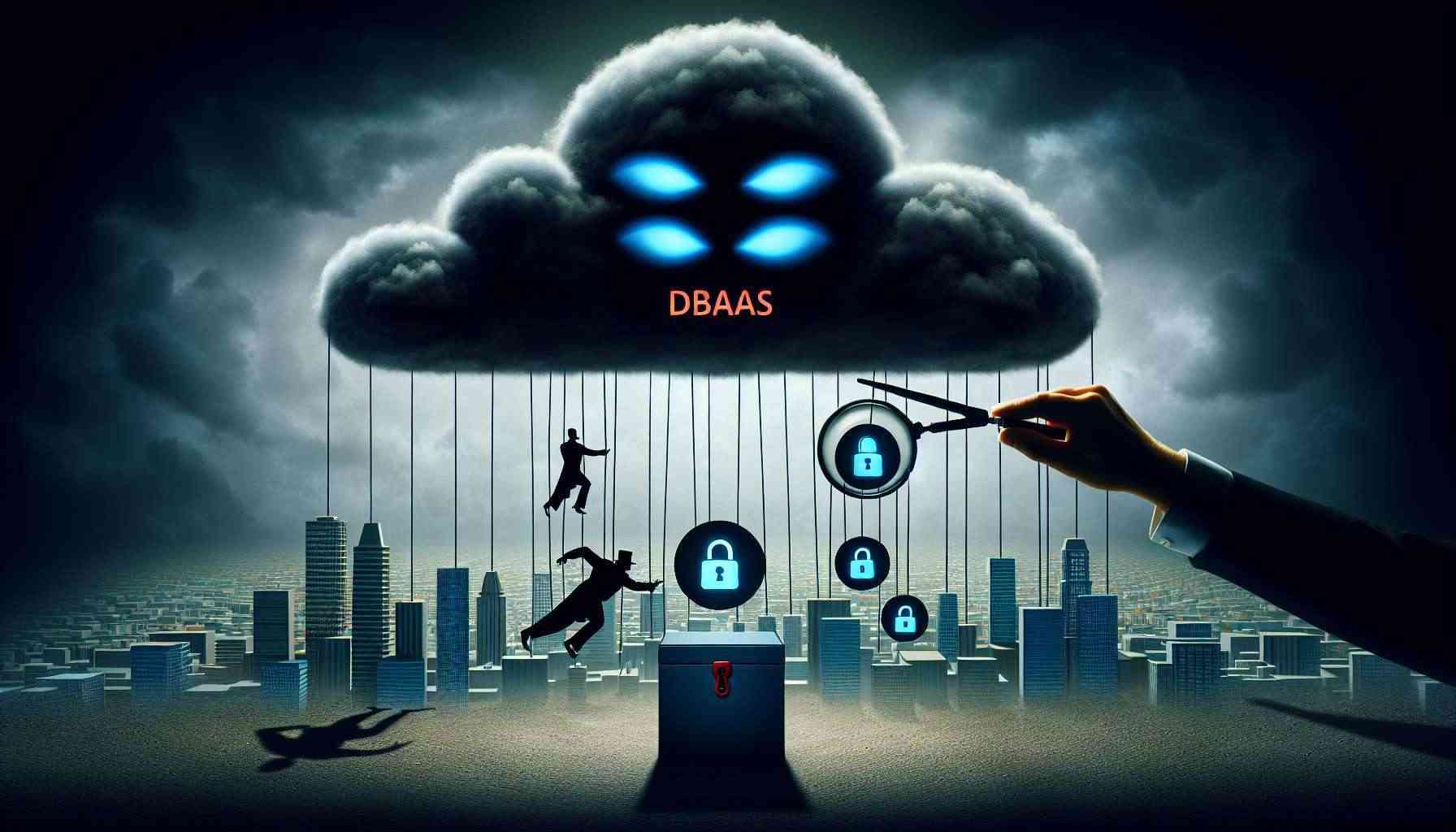In the digital age, data management has transformed from locally hosted servers to cloud solutions. The choice of self-managed cloud databases vs DBaaS is a common debate among those who are looking for the best option that will cater to their particular needs.
Database as a Service (DBaaS) and managed databases offer distinct advantages along with certain challenges. Understanding these pros and cons can help one make an informed decision about which database service works best for them.
Key Takeaways
- Navigating Database Management: DBaaS and Self-Managed Options offer organizations the option to either self-manage their databases or use a Database as a Service (DBaaS) provider.
- Self-managed databases offer control, flexibility, and the ability to avoid vendor lock-in but require significant time & resources. DBaaS provides streamlined management with maintenance-free operations & enhanced security.
- ScaleGrid’s comprehensive solutions provide automated efficiency and cost reduction while offering tailored features such as predictive analytics for businesses of all sizes.
Navigating Database Management: DBaaS and Self-Managed Options
Managing databases can often seem like a limitless ocean to explore. Traditional self-managed ones give organizations full control over their database infrastructure, such as picking the software and scaling it up. They also come with some drawbacks—high costs and resources needed for successful management.
Database as a Service (DBaaS) providers are an alternative option that acts almost like going on a cruise ship: quick provisioning is facilitated by them, while scalability, support services, and flexibility benefit from pay-as-you-go models.
There are cost savings thanks to this service approach, but there could be issues of vendor lock-in or security concerns too.
Understanding the Database as a Service Model
With DBaaS, businesses can enjoy a comprehensive and fully managed cruise experience. This model offers hassle-free database management as well as access to an extensive suite of services that reduce developer workloads and enhance security while providing operational agility.
It’s like having an entire crew ready for whatever your needs may be, so you don’t have to worry about the technicalities of managing databases, giving you more time for leisurely activities aboard ship instead!
Even if users appreciate not needing manual maintenance anymore, it should still be noted that such packages lack customization options and require longer learning curves before one can get comfortable with them.
Understanding this DBaaS system might take some adjusting too similar just how traveling on cruises has its tempo which requires us to get used to optimally benefit from what it provides.
Despite those minor challenges posed by this platform, many individuals are turning towards considering using the DBaaS Model partly because they understand considerable advantages lie underneath implementing & utilizing such technology within their systems.
Thereby streamlining their database infrastructure without any major complications or stress accompanying doing the same effectively resulting in fewer worries when setting out sail onboard!
The Future of Self-Managed Database Service
Self-managed databases, compared to DBaaS, which is like a cruise ship experience, can be thought of in the same way that sailing a boat would be. You are both captain and crew.
This type of database offers scalability with no downtime along with giving businesses control over what resources they use through customization capabilities such as choosing hardware infrastructure options or building security measures around it.
Accessing underlying software associated with self-managed databases will ultimately help streamline performance while also providing improved levels of safety for any given organization utilizing them.
Self-Managed Cloud Databases: Pros and Cons
Self-managed cloud databases provide organizations with access to direct maintenance and upgrades, full control over the database configuration for tailored purposes, scalability according to need, and vendor lock-in from a DBaaS provider. These advantages come at an expense.
These databases require significant time commitment along with necessary technical skills plus hardware & software costs, all of which are without dedicated team assistance.
Though it may be overwhelming, there can still be great appeal when one has control over their own data privacy requirements depending on how customization is desired by the organization itself.
Customization and Control
Self-managed databases offer organizations the opportunity to customize their infrastructure to improve performance and security, as well as satisfy unique needs.
This includes being able to select the right hardware options for the job, enforcing desired safety measures, and having access to a variety of database software.
The great thing about this is that it provides companies with an unprecedented level of freedom when configuring their system.
Self-managed database service can serve as an invaluable resource because it gives individuals control over optimization procedures on both operational levels and granular details.
The Hidden Costs of Independence
Owning your database can be exciting, but the costs of such independence may not be worthwhile. Self-managed databases come with their own set of expenses that must be factored in – managing a database requires time and effort which often includes backup storage, patching software upgrades as well as other typical administration tasks.
Further reading: One Cloud Doesn’t Fit All Anymore
The expenditure for hardware and software equipment together with needing specific technical abilities plus continual upkeep all add up substantially over time.
Advantages of DBaaS
Database management with DBaaS is like being on a luxury cruise. All the tedious tasks such as storage, backups, and configuration are managed by an attentive crew so that you can concentrate on making your vacation special.
Make sure to read our extensive article on DBaaS Pros and Cons!
Thanks to the automation of common activities, including updates and security patches, there will be more time for IT teams to explore strategic ideas.
With this service at hand, you have direct access not only to specialist teams but also to compatible models which makes mobile app construction easier. It’s almost concierge-like!
Maintenance-Free Operations
An important benefit of DBaaS is its low maintenance capability. It can be likened to having an onboard staff taking care of all the upkeep during your voyage, so you can simply take in the journey with no worries.
By relying on a DBaaS solution instead of manual maintenance tasks, developers get freed up from tedious labor and avoid adding any extra hardware costs that come along for businesses making it budget-friendly.
Security and Support
Database security and support are ensured with the help of DBaaS. Integrated authentication, authorization protocols as well and encryption for data both in transit and at rest enhance safety.
For any eventuality or crisis related to databases, experienced database administrators provide 24/7 assistance whenever needed, giving assurance that expert aid is always close by.
The Flip Side: Considering DBaaS Limitations
Given that there are limitations on even the most luxurious cruise, there are also some DBaaS challenges. First and foremost is setting up proper contracts with vendors while taking into account possible restrictions in control or customizability of data services.
Safeguarding information privacy must be taken very seriously as any processing entrusted to outside suppliers could become a cause for concern.
One way this can be compared to cruising is being bound by voyage requirements (just like those experienced onboard any vessel) meaning some individual preferences may not always come first when dealing with external companies that provide database solutions as a service (DBaaS).
Keeping careful watch over how your data flows through third-party systems should remain at the forefront whenever you choose to use such platforms.
Navigating Vendor Relationships
When selecting a DBaaS provider, one must evaluate their reliability and service agreements. This is done to prevent vendor lock-in. Being restricted by the same single vendor over an extended period may become problematic if needs change.
Data Sovereignty and Privacy
When sailing on the DBaaS ship, data sovereignty and privacy are essential. Data sovereignty denotes that collected information is subject to the country’s legal framework where it was gathered.
This means that any info stored in a database remains within its rightful owner’s domain as well as under its control.
For customers’ details to be kept safe, most DBaaS providers impose rigorous security measures. The responsibility of being compliant with all relevant protection laws still lies with those possessing said facts.
ScaleGrid’s DBaaS: Tailored Solutions for Modern Needs
When it comes to database management, ScaleGrid stands out from other DBaaS providers with its tailored solutions for modern needs.
It provides real-time optimization of resources and customizable alternatives that restore autonomy in addressing key issues related to the service.
A wide array of features is offered by this provider such as predictive analytics, customer databases, endpoint protection, and automated system management functions which create an enhanced onboarding experience much like on cruise ships where you are surrounded by amenities and entertainment options.
What’s more, their platform delivers improved workload efficiency through backup automation along with performance-optimizing tools specific for various types of databases as well as continuous monitoring & benchmarking capabilities.
Managing vendor relations becomes less costly thanks to support found here automating otherwise laborious routine tasks they require without taking away useful pieces while striving towards optimal performance at all times, something not common among many hosting services today!
Comprehensive DBaaS Offerings
ScaleGrid’s database offerings provide comprehensive coverage of all your database needs. Their selection is as extensive and diverse as that on a cruise liner, with options such as MongoDB®, Redis®, MySQL™, or PostgreSQL® ensuring everyone will find something to their liking.
It’s the perfect place for all customers who wish to cover their databases from one provider in one convenient spot!
Workload
ScaleGrid’s DBaaS is a perfect tool to lighten your workload and remove the need for you to manage routine tasks related to database storage, backups, and configuration. This automation of processes allows more time dedicated to fulfilling core tasks efficiently without any extra effort required on your part.
Vendors
ScaleGrid provides the flexibility to select a suitable database architecture, minimizing worries of vendor lock-in. Rather like an ocean liner that docks at various ports, ScaleGrid allows you to pick from different database options depending on what best meets your requirements.
Affordability
ScaleGrid offers cost-effective DBaaS solutions that make it a reasonable choice for both small and large companies. It’s similar to finding a luxurious holiday package at a budget price, granting you basic access to all the necessary amenities.
All these services offer great value when considering the overall expenditure on accessing data solutions.
From storage provisioning features down to enhancing user security with granular control over configurations – customers get more than their money’s worth of accessibility for crucial operations through ScaleGrid’s dbaas platforms in one single go!
Customization
ScaleGrid’s DBaaS solutions provide ample flexibility to customize your experience. Much like being on a cruise ship, you can select the type of database desired and easily adjust its configuration or resize it according to requirements. As such, ScaleGrid provides all the flexibility required for users to get exactly what they need from their databases.
Code Writing
ScaleGrid’s Database-as-a-Service solution provides your team with an opportunity to take a break from managing database maintenance tasks and concentrate on product development instead.
With this DBaaS, you can have the pleasure of vacationing without any worry about maintaining the vessel, like embarking on a journey where sightseeing is all that matters!
Expansion
ScaleGrid’s DBaaS provides companies with the ability to expand and grow without any hassle, like taking a voyage on an ocean liner that can smoothly increase its capacity when more people board. By utilizing this scalability, businesses have total freedom.
Expert Help
ScaleGrid’s experienced professionals are there to make your experience with databases pleasurable and hassle-free. From performance optimization to management, their team of experts assists whenever needed so that you can have a pleasant journey.
Automated Efficiency and Cost Reduction
At ScaleGrid, we prioritize automation and cost-saving with our DBaaS solution. Think of it like a cruise ship where everything is automated to ensure smooth sailing while minimizing expenditures!
Identifying the Ideal Beneficiaries of ScaleGrid’s DBaaS
ScaleGrid’s DBaaS offers a plethora of advantages for various users, such as database administrators, IT personnel, application owners, software developers, and small to medium-sized businesses. This service can enable them to fully benefit from its features and maximize their potential in the long run.
Making an Informed Decision: DBaaS or Self-Managed
Choosing between DBaaS and managed service requires an understanding of your business needs, resources, and long-term goals. Much like choosing to go on a luxury cruise or sailing adventure is based on personal preferences, the decision here should be an informed one.
DBaaS provides ease of use along with maintenance-free operations as well as robust security to support. It can limit customization abilities while requiring attention to data privacy matters when dealing with vendors.
Self-managed databases provide full control over customizing but come at a cost: administration must be taken care of plus scalability issues may arise too.
Examining carefully both options before making a choice is highly recommended so that any user gets maximum benefit from whichever they choose!
Taking the Next Step with ScaleGrid
When deciding on a cloud-based database solution, consider the range of DBaaS offerings provided by ScaleGrid.
Our managed services are secure and cost-effective, ensuring businesses can concentrate on their core operations while our experts take care of the technicalities using SQL Server and Azure SQL Database in cloud computing applications.
Our DBaaS solutions provide MongoDB®, Redis®, MySQL™, PostgreSQL®, plus many more amenities, all available as part of our comprehensive service provider package.
We invite you to get started with us or request a demo today so that we can support your journey toward optimizing your database management strategy.
Summary
When navigating the realm of database management, decisions should be made that consider your individual needs and resources. Self-managed platforms can bring more control and customization but also include significant responsibility for maintenance.
With DBaaS, you get user ease and no need for upkeep along with fortified security yet less customization. Data privacy is paramount when selecting which route best fits – ultimately it comes down to what works most effectively long term.
Frequently Asked Questions
What are the disadvantages of DBaaS?
Organizations that utilize DBaaS solutions may be limited in terms of their access to the servers and storage devices, necessitating them to depend on a cloud provider for managing their infrastructure. Nevertheless, if pre-paid usage limits are exceeded or inferior service levels result, then additional costs could unexpectedly arise.
What is the difference between DBaaS and DBMS?
A DBaaS is a managed service that enables companies to get rid of the expensive and complicated procedure of setting up and managing their databases. It functions as an interface between users, applications, or programs for retrieving, optimizing, and updating information stored in database systems with financial advantages on top. This formula helps businesses benefit from operations, strategies, and management relating to the deployment of database management systems (DBMS).
What is the difference between a managed and self-hosted database?
When deciding between a managed service and a self-hosted database, it’s essential to consider one’s necessities. With a hosted option, cloud providers maintain the data with access granted to their support staff. Conversely, there is greater control over configuration when selecting an independently maintained solution.
What is the meaning of DBaaS?
DBaaS stands for Database as a Service, which is an online cloud database solution that allows customers to access databases without having to manage the infrastructure themselves.
What are some key benefits of ScaleGrid’s DBaaS?
ScaleGrid’s DBaaS provides a wide range of advantages such as no-fuss operations, improved security and assistance, extensive DBaaS offerings with flexible workloads, and the ability to select from multiple vendors. Cost reduction via automation makes it an attractive choice too. Users can expect customizability along with scalability for their use cases while being able to get specialized help whenever needed.





